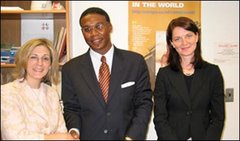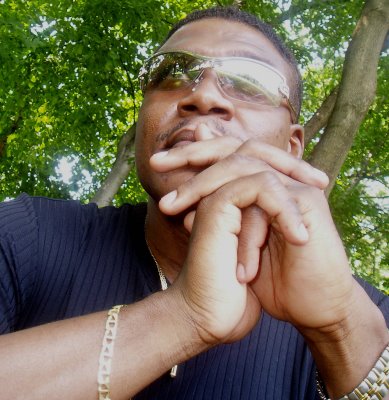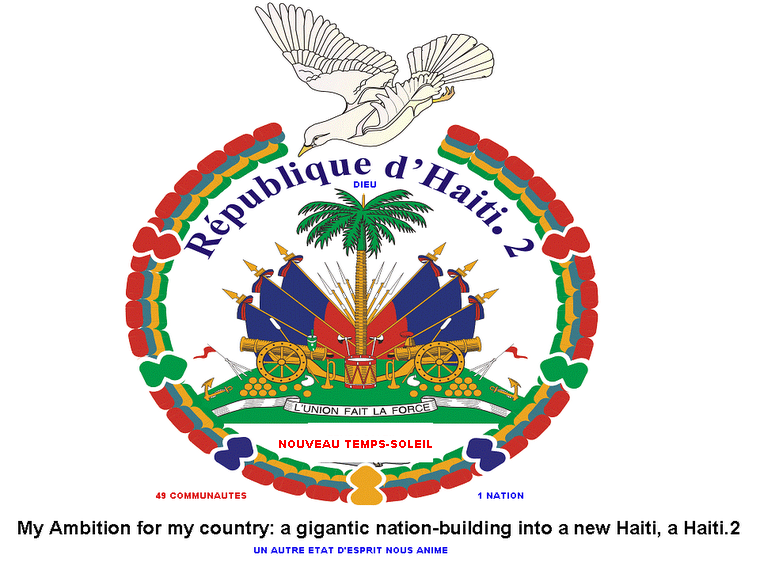Justima's Comments on the Article "The Return of Aristide" by the well-known american activist lawyer Brian Concannon
Dear Brian,
I congratulate you on a fine piece of article about " The Return" of Aristide to Haiti. Your article puts in display your profound sense of justice as well as great sense and sensibility for my people, the people of Haiti. And you will find that my comments are all about: Justice. For without it, you won't have the social capital greatly needed to build Haiti as a productive prosperous nation that governs itself and a contributor to the division of the world labor.
Haitians have a profoundly innate sense of justice and of and injustice constantly encircling them and this is why they think they should always be on their guard a) with their own kind and b)with foreigners as well who may turn out to be "coquins", deceptive wise guys that seek to exploit their innocence, naivety and goodwill in order to trick them, play them and have it both ways.
That is what enrages typical Haitians and makes them behave often as "engendrés", as people not controlling their primal impulses, in order to show they will not just lie down and be the door mat for their 'exploiter' to walk upon unchallenged and unchecked. Give Haitians peace and above it give them justice, social justice, economic and political justice and I give you a country which makes an astonishing quantum leap toward political stability, institutional stability, social stability along with the requisite stability of contracts it takes to ensure the economic stability that has been so elusive to Haiti, not surprisingly since 1806 when this issue of justice was first posed and which brought down the Founder of the Haitian nation, Dessalines, assassinated.
To many, the Aristide issue falls in the same category of perceived great injustice done to a man, symbolizing one who came from the bowels of the people and who dared raise his head and take himself to the pinnacle of power. Yes, Aristide the Great, as in the consciousness of the masses as a priest activist, was a disappointment and a disaster and an erratic and ineffective ruler as President.
In the eyes of many, had they let him complete his 5 years term, not with a blank check and unchallenged because he was so democratically elected by the people, but in pressuring him to do what he was elected for, the country would have been better off than it is today. Still, as he shown signs of a madman in power, as perceived by many, judge him says the sense of justice of the majority of the Haitian people. Make an example of him but no "coup d'état" and worst, no exile. No Haitian should be barred from his country as a co-heir and co-owner of the motherland by virtue of the deeds and sacrifices consented by the forefathers and foremothers of each of us, who were either former slaves or former free colored men being abused by the colonial powers. We were all made into co-heirs and co-owners of the common heritage, of 27,700 sq meter of land, and no one and nothing can cheat us out of our part of ownership. And that is what the constitution in spirit must have implied in so explicitly prohibiting exile. But yet again, when was the last time something was done constitutionally in Haiti, except to barr or to punish?
And when you say that, surprisingly, a lot of the world "experts on Haiti" (we don't know what makes a lot of them so"), and in a twist that borders neo-racism of not expecting much and having nothing but lower expectations of the Haitian nation like we are incapable of the good, the right, the great, etc., would tell you in a self-righteous and patronizing way that for our fragile democracy: that's good enough. I say, either what is democracy is standards that are good and right for all mankind or democracy is not as good and right.
Many Haitians and many worldwide contend that Aristide's return would be a very polarizing and divisive event that could damage the effort of moving Haiti forward. True and false. And if true, it must be put in the list of "growing pains" so we face our fears as a nation and reach maturity as a people. For no longer having Aristide as "the Issue", will clear the smokes and the country will be able to go about its existential questions and businesses of (re)-construction, turning the country over in a 25 to 30 year span into a Haiti.2, a new version of Haiti that is as a maritime hub, the far industrial and commercial outpost of Africa in the Americas and as a financial hub and overseas placement of investments into Africa, the Hong-Kong and Singapore combined of Central America and of the Caribbean.
The Haitian law can handle Aristide when he returns. In fact, that should be its test of maturity. These are the trials that make champions. The new political class that is emerging can handle Aristide in getting him strict political, financial and security conditions for Aristide to live in his home town of Port-Salut and prosper like any other Haitians in his own country. But he will be home. He will no longer be treated as a Haitian waste, as an inconvenient garbage to throw far away in someone's else backyard or landfill. He is a former President and like all former Presidents, after we trial them so we could pardon them and reinsert them into our society, we owe them as we owe Aristide the respect due to a chief of our country.
To sum up, for a majority of the masses, for a majority of the Haitian people who are in Haiti and abroad, Aristide is a complex man. You can't slice him to take his goods and leave his bads. Hate him or love him, you must take him with his goods and his bads as you can't slice him in two. He is Aristide The Great, the priest-activist and social consciousness of his people. He is Aristide, the Disaster in Haitian history as President. A balanced view, like all of us.
But, and this is the first point, toppling him from power by removing him forcibly looking at the barrels of guns of foreign armies encircling the Haitian national palace (you could not do that anywhere else in peacetime and this is a dangerous precedent for any president anywhere), is an undisgestible thought for any patriot anywhere. Because these foreign armies who came to help could have been there also (if we admit the principle of the duty to intervene)as a fair referee to ensure that he is instead judged by a sort of the constitutional high court of justice and if found guilty that he be stripped of his powers legally and constitutionally. What an example that would have been for Haitian future leaders and for presidents everywhere! That would have been consistent with elementary respect for the law that we seek so desperately to teach the masses.
Secondly, barring him from returning to his country amounts to passing an arbitrary extra judicial judgment on him that must be passed by a court of law; he can be shamed by the court of public opinion nationally and internationally that can treat him as a pariah, or ultimately shamed by the judgment of history.
If I was President, the issue would not be shall he return? It is elementary. No Haitian can be barred from the motherland. It is a right nothing, no one can take away. The issue would be when and how, to cause the least disruption possible so Haitians can turn the page for good and move on with the post-Aristide, post-Preval era.
JUSTIMA, Emmanuel
emmanuel_fondationjustima@voila.fr
justima@live.com
HAITI.2@live.com
justima@live.com
HAITI.2@live.com
What's your own opinion on the issue? I'd like to know...

.jpg)







